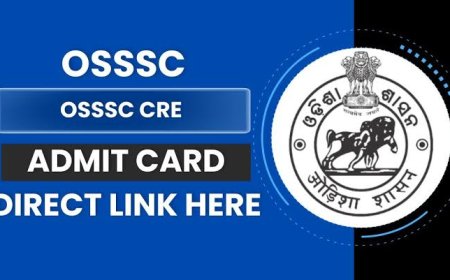The Role of a Food and Beverage Service Steward in a Hotel
The Role of a Food and Beverage Service Steward in a Hotel

## The Role of a Food and Beverage Service Steward in a Hotel
### Introduction
In the hospitality industry, the role of a Food and Beverage (F&B) Service Steward is both vital and multifaceted. Often serving as the frontline ambassadors of a hotel's dining experience, F&B Stewards ensure that guests receive exceptional service and enjoy their meals in a pleasant environment. This article delves into the comprehensive responsibilities, skills, and qualities required of an F&B Service Steward in a hotel, highlighting the significance of their role in the broader context of hotel operations.
### Responsibilities of an F&B Service Steward
The responsibilities of an F&B Service Steward are diverse and extend beyond merely serving food and beverages. Here are the key duties they perform:
1. **Guest Service**: The primary responsibility of an F&B Steward is to provide excellent customer service. This includes greeting guests, presenting menus, making recommendations, taking orders, and ensuring that guests' needs are met promptly and courteously.
2. **Table Setting and Maintenance**: Stewards are responsible for setting up tables according to the hotel's standards. This includes arranging cutlery, glasses, napkins, and other tableware. They must ensure that tables are clean, well-organized, and aesthetically pleasing.
3. **Food and Beverage Service**: Stewards serve food and beverages to guests. This requires a thorough understanding of the menu, including ingredients, preparation methods, and presentation. They must be able to answer questions about the menu and accommodate special requests or dietary restrictions.
4. **Order Accuracy**: Ensuring that orders are accurately taken and delivered is crucial. Stewards must double-check orders before serving to avoid any mistakes, which could lead to customer dissatisfaction.
5. **Clearing and Cleaning**: After guests have finished their meals, stewards clear the tables and clean the dining area. This includes removing used plates, glasses, and cutlery, wiping down tables, and resetting them for the next guests.
6. **Coordination with Kitchen Staff**: Effective communication with the kitchen staff is essential. Stewards relay orders, notify the kitchen of any special requests, and coordinate the timing of food delivery to ensure that dishes arrive fresh and at the correct temperature.
7. **Beverage Service**: Stewards may also be responsible for serving alcoholic and non-alcoholic beverages. This includes preparing drinks, understanding beverage pairings, and ensuring that guests are of legal drinking age.
8. **Billing and Payment**: Handling billing and payments is another key responsibility. Stewards present bills to guests, process payments, and provide change if necessary. Accuracy and honesty are crucial in handling financial transactions.
### Skill Required for an F&B Service Steward
To excel in the role of an F&B Service Steward, certain skills are essential:
1. **Communication Skills**: Excellent verbal communication skills are crucial for interacting with guests, understanding their needs, and providing information about the menu and services.
2. **Customer Service Orientation**: A strong customer service orientation is essential. Stewards must be friendly, approachable, and attentive to ensure a positive dining experience for guests.
3. **Attention to Detail**: Attention to detail is important for setting tables, taking orders, and ensuring that all aspects of service meet the hotel's standards.
4. **Multitasking Ability**: The ability to multitask and prioritize tasks efficiently is vital in a fast-paced dining environment. Stewards must manage multiple tables, coordinate with kitchen staff, and handle various guest requests simultaneously.
5. **Physical Stamina**: The role can be physically demanding, requiring stewards to stand for long periods, carry heavy trays, and move quickly between tables and the kitchen.
6. **Problem-Solving Skills**: Stewards should be adept at handling unexpected situations, such as dealing with dissatisfied guests, managing special requests, or addressing any issues that arise during service.
7. **Teamwork**: Collaboration with other F&B staff, including servers, kitchen staff, and managers, is essential for seamless service delivery. Stewards must work as part of a team to ensure that guests receive timely and efficient service.
### Qualities of an Effective F&B Service Steward
In addition to skills, certain qualities define an effective F&B Service Steward:
1. **Professionalism**: Stewards should maintain a professional demeanor at all times. This includes dressing appropriately, using polite language, and adhering to the hotel's service standards.
2. **Punctuality and Reliability**: Being punctual and reliable is crucial for maintaining smooth operations. Stewards should arrive on time for their shifts and be dependable in fulfilling their duties.
3. **Adaptability**: The ability to adapt to changing circumstances and guest preferences is important. Stewards should be flexible and open to feedback to continuously improve their service.
4. **Positive Attitude**: A positive attitude can significantly enhance the guest experience. Stewards should remain cheerful and enthusiastic, even during busy or challenging times.
5. **Attention to Hygiene**: Maintaining high standards of personal hygiene and cleanliness is essential, especially in a food service environment. Stewards should follow proper hygiene practices to ensure the safety and well-being of guests.
### Training and Development
Proper training is essential for F&B Service Stewards to perform their duties effectively. Many hotels provide comprehensive training programs that cover various aspects of the role:
1. **Onboarding and Orientation**: New stewards typically undergo an onboarding process that includes an introduction to the hotel's policies, procedures, and service standards. They may also receive a tour of the dining areas and kitchen.
2. **Menu Knowledge**: Understanding the menu is crucial for making recommendations and answering guest questions. Training programs often include detailed information about the dishes, ingredients, preparation methods, and presentation.
3. **Service Techniques**: Training in service techniques covers the proper way to set tables, serve food and beverages, handle trays, and clear tables. Stewards learn how to perform these tasks efficiently and gracefully.
4. **Customer Service Skills**: Customer service training focuses on communication, problem-solving, and handling guest interactions. Stewards learn how to address guest complaints, accommodate special requests, and create a positive dining experience.
5. **Safety and Hygiene**: Training in safety and hygiene practices is essential to ensure the well-being of guests and staff. This includes proper handwashing, food handling, and sanitation procedures.
6. **Beverage Service**: For stewards who serve alcoholic beverages, training includes information on responsible alcohol service, checking identification, and understanding beverage pairings.
### Challenges Faced by F&B Service Stewards
While the role of an F&B Service Steward is rewarding, it also comes with its challenges:
1. **High Workload**: During peak dining times, stewards may have to manage a high volume of guests and multiple tables simultaneously, leading to a heavy workload and potential stress.
2. **Guest Expectations**: Meeting and exceeding guest expectations can be challenging, especially when dealing with demanding or dissatisfied guests. Stewards must remain calm and professional in such situations.
3. **Physical Demands**: The physical demands of the job, including standing for long periods and carrying heavy trays, can be taxing. Stewards must maintain their physical stamina and manage their energy levels effectively.
4. **Coordination with Kitchen Staff**: Effective communication with the kitchen is crucial for timely service. Miscommunication or delays can lead to errors and guest dissatisfaction.
5. **Adapting to Changes**: Stewards must adapt to changes in menu items, service procedures, and guest preferences. Continuous learning and flexibility are essential to stay current and provide excellent service.
### Career Advancement Opportunities
The role of an F&B Service Steward can serve as a stepping stone for career advancement within the hospitality industry. Here are some potential career paths:
1. **Senior Steward or Supervisor**: With experience, stewards can move up to senior or supervisory roles, where they oversee other stewards, coordinate service, and ensure that standards are maintained.
2. **F&B Manager**: Stewards with strong leadership and management skills may advance to the role of F&B Manager, responsible for overseeing the entire food and beverage department, including staffing, budgeting, and quality control.
3. **Specialized Roles**: Stewards can also specialize in certain areas, such as wine service (sommelier), event planning, or catering management, depending on their interests and skills.
4. **Hotel Management**: For those interested in broader management roles, experience as an F&B Steward can provide a solid foundation for pursuing a career in hotel management.
### Conclusion
The role of a Food and Beverage Service Steward is integral to the success of a hotel's dining operations. Stewards play a crucial role in ensuring that guests have a memorable dining experience through excellent service, attention to detail, and a positive attitude. By mastering the necessary skills and qualities, stewards can excel in their roles and open up opportunities for career advancement within the hospitality industry. Their contributions not only enhance guest satisfaction but also contribute to the overall reputation and success of the hotel.






































